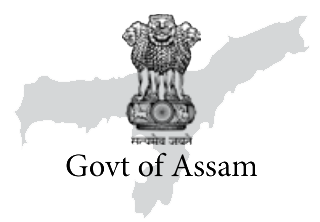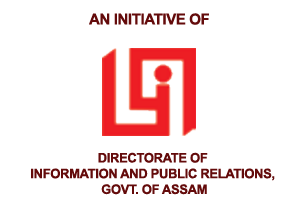The year 2017. Abul Hussain of Dhantola Bazar in Bongaigaon had to be operated for gastric ulcer. He was 48, and the principal earning member of his family. He knew that his age as well as his medicate condition will pose a challenge to him and his next generation. Yet, he decided to dispose of a portion of his holding to undergo the treatment. However, early this year, when his son had to undergo a medical treatment, Abul hardly spent a penny and was able to get a ‘free’ and cashless treatment for his son. All he did was wave the Ayushman Bharat Digital Card issued to him under the Pradhan Mantri Jan Arogya Yojana (PMJAY) at a dedicated point in the local hospital. Abul realised that he was unfortunate that the PM JAY Scheme came into effect just months after his treatment in 2017.
To ensure that the likes of Abul are not deprived of proper treatment, and do not slide down the poverty line, the Assam Government has decided to supplement the PM JAY Scheme with a novelty called Ayushman Asom: Mukhya Mantri Jan Arogya Yojana (AA-MMJAY). “We are budgeting ₹ 400 crore of our money in the first year of this scheme,” Siddartha Singh, CEO, Atal Amrit Abhiyan told Asom Barta.
“There were scepticisms in the
Kamuna Ray, ASHA worker
initial stage. But once, a couple
of beneficiaries received
cashless treatment in our area,
things changed dramatically.
Receiving treatment of ₹ 5 lakh
for households like ours
is a big thing”
He said that while retaining the basics of the AB-PMJAY, the AA-MMJAY is a family floater health assurance scheme offering cashless medical treatment up to ₹ 5 lakh per eligible family per year. Beneficiaries listed under the National Food Security Act (NFSA) who have an Aadhaar Card and are not covered under AB-PMJAY shall be eligible for the scheme.
Under this, 1,578 procedures in more than 300 empanelled hospitals in Assam and all AB-PMJAY empanelled hospitals across the country shall be made available to a card holder or her family free of cost. “We want to open the gates of the best private hospitals for these individuals, besides, of course, the Government ones, should the need arise for a patient to go out of the State,” the CEO said.

Inaugurating the scheme on May 10, the Assam Chief Minister Dr. Himanta Biswa Sarma said that under the AA-PMJAY, 30 lakh households based on the Socio-Economic and Caste Census of 2011 were eligible for Ayushman Bharat cards in Assam. However, the Centre gave its approval to the State to allow beneficiaries under the National Food Security Act to receive benefits under AA-PMJAY. Ration Card has been provided to 57 lakh households under NFSA, out of which 30 lakh householders are already under AA-PMJAY, while the remaining 27 lakhs will avail benefits under AA-MMJAY, and in due course when the Food and Civil Supplies Department issues ration card to 5 lakh more households, they, too, can benefit from AA-MMJAY.
A campaign across the State, by deploying some 25,000 field workers, is already in full swing to ensure that prospective beneficiaries are registered with E-KYC. Accordingly, E-KYC of 1.51 cr eligible beneficiaries have been updated under the Scheme. The State Government is hopeful of registering 80-85% of the intended beneficiaries by August assisted by the dedication of the likes of Kamuna Ray, an ASHA worker under Singimari Health and Welfare Centre in Bongaigaon district. When this reporter visited her home, she had invited several householders of Singimari 1st Block to explain to them the virtue of AA-MMJAY and the registration procedure. In the last few days, Jamuna had managed to deposit KYC forms of 381 householders under her Centre to a Multipurpose Health Worker (MPH) assigned to collect these documents.
One of the MPHs deployed on ground is Jayanta Kumar Das of Boitamari Block, Sub Centre in Majer Alga, He, too, is in possession of data of over hundred householders from ASHA workers of his area. By including ration card data in the dedicated app, MPHs can find out the eligibility of the beneficiary. Once this is done, MPHs visit their houses to complete E-KYC formalities.
“If mobile network is available and the server is functioning well, we hardly need 10 minutes to complete all E-KYC formalities. There are examples when beneficiaries have availed of the facility of this card the same day after filling in E-KYC details,” Jayanta informed this newsletter.
He emphasised the importance of the availability of a finger-print machine, the absence of which means one must have a smart phone with an in-built face-recognition feature, which again is not without problems.
“There were scepticisms in the initial stage. But once, a couple of beneficiaries received cashless treatment in our area, things changed dramatically. Receiving treatment of ₹ 5 lakh for households like ours is a big thing,” Kamuna said.
The wife of Bubul Deka (45) of Prafulla Nagar in Mangaldai came to know of the scheme only when his cancer was detected. They deposited their documents in the AB-PMJAY centre in the hospital and received their KYCon that very day. Following this, Bubul managed to receive a cashless treatment.
“He received cashless treatment of ₹ 37,000 at the State Cancer Care Hospital in Guwahati, and subsequently 32 radiation therapy were provided to him free of cost,” she told this reporter.













